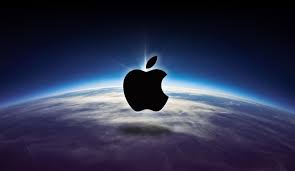Apple’s No-Good, Very-Bad Day: Trade War, Supreme Court Ruling Knock Stock Down 6%

If your week is off to a bad start, spare a thought for Apple. Its stock tumbled nearly 6% Monday, after two separate actions from the U.S. Supreme Court and Chinese trade authorities posed growth challenges to both its hardware sales and its growing services revenue.
The day began with China saying it would retaliate against the Trump administration’s vow to raise tariffs on Chinese products, as a trade war between the two economic giants appears to have entered a new round of escalation. The announcement followed Trump’s move to raise import tariffs on $ 200 billion worth of Chinese goods from 10% to 25% last Friday.
So far, the tariffs have had a relatively limited impact on Apple. Thanks in part to CEO Tim Cook’s lobbying, the iPhone-maker has managed to skirt the impact of last fall’s tariffs because they exempted laptops and mobile phones. But the higher tariffs on a broader range of goods may bring a new level of financial pain to the company.
According to Morgan Stanley analyst Katy Huberty, while the impact of those tariffs have been “minimal” to date, “Apple has one of the most significant exposures to Chinese exports to the U.S., given that final assembly for many of its consumer devices is located in China.”
Next, the a 5-4 vote in the U.S. Supreme Court ruled that an antitrust case brought by iPhone consumers against Apple could move forward. The case centers on a 30% commission that Apple takes on sales of iPhone apps in its App Store, which plaintiffs are arguing pass on to consumers in an unfair use of monopoly power. Apple has argued that only developers can raise such a case, but the ruling, written by Brett Kavanaugh, decided otherwise.
“We’re confident we will prevail when the facts are presented and that the App Store is not a monopoly by any metric,” Apple said in a statement responding to the high court’s ruling.
Monday’s one-two punch is especially tough on Apple because the Silicon Valley giant is in the midst of a slow, difficult transition from being a hardware-based business to a services-oriented organization. After a dozen years of torrid growth, iPhone sales have begun to slow, with consumers hold on to their smartphones for a longer period of time. To adjust to the slowdown, Apple has raised prices on its newer iPhones, while pushing for more service revenue through subscriptions and its App Store.
News of the brewing U.S.-China trade war caused the Dow Jones Industrial Average and the S&P 500 Index to each fall 2.4% on Monday. Apple’s stock, meanwhile, fell more than twice as much, stripping about $ 50 billion out of its market cap. As of the close of the market Monday, Apple’s stock had fallen 13.7% since the beginning of May.
Despite the selloff, Apple’s bad day could have a limited impact, should a court rule in Apple’s favor and if the U.S. and China avert a full-blown trade war. On the other hand, it could be months before these two issues are resolved.
Just two weeks ago, when Apple reported earnings on April 30, Cook said, “There is an improved trade dialogue between the U.S. and China… We certainly feel a lot better than we did 90 days ago.”
But today’s events make one thing clear: A lot can change in 90 days—or even in one.
More must-read stories from Fortune:
—How to invest during a trade war
—The 9 biggest IPOs of all time
—The uncomfortable truth about going public with a money-losing business
—Trade war takes giant bite out of Apple’s market value
—Uber is one of the worst performing IPOs ever
Follow Fortune on Flipboard to stay up-to-date on the latest news and analysis


